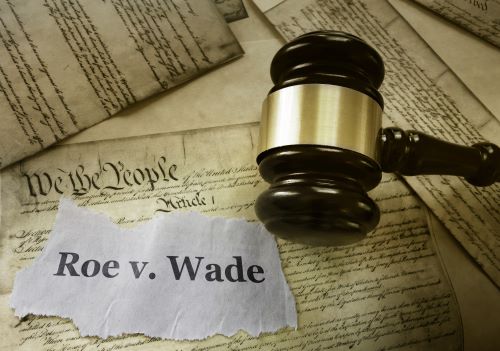Could SCOTUS leaker be charged with crime? Espionage Act wouldn't apply, but other laws might

Images from Shutterstock.
Could the person who leaked U.S. Supreme Court Justice Samuel Alito’s draft abortion opinion be charged with a crime?
It’s possible, even though the Espionage Act wouldn’t apply, say experts who wrote for Bloomberg Law and spoke with Reuters, Wired, PolitiFact and the Washington Post. That law applies to classified information, and a court opinion is not classified.
The application of some laws would depend on the situation.
If the person who leaked the opinion hacked into a computer to obtain it, there could be a prosecution under Section 1030 of the federal criminal code at Title 18, according to the Bloomberg Law article by three former federal prosecutors. And if the person falsely denied involvement during the investigation, there could be a prosecution under Section 1001 of Title 18.
Otherwise, the most viable theory is theft of government property under Section 641 of Title 18, according to tweets by Orin Kerr, a criminal law professor at the University of California at Berkeley, who also spoke with Reuters.
The paper used to print the opinion is likely valued at less than $1,000, putting the crime “in misdemeanor territory,” according to Bloomberg Law. But the value could be higher if confidential information qualifies as a thing of value.
Federal courts have differed on whether theft of an intangible good is a violation of the law, according to Wired. But the U.S. Court of Appeals for the District of Columbia Circuit has held that information can be a thing of value under the law, Kerr tweeted.
Several other laws could also apply, according to the former federal prosecutors writing at Bloomberg Law. The leaker could be accused of these Title 18 violations:
• Corruptly influencing an official proceeding by seeking to change justices’ votes under Section 1512(c)(2). Former U.S. Attorney General William Barr seemed to reference that law in an interview after the leak with radio host and journalist Megyn Kelly, according to PolitiFact.
• Disclosing confidential information as an officer or an employee of the United States under Section 1905.
• Conspiracy to defraud the United States under Section 371. The allegation would be that the leaker deprived the court of the right to announce its decision at the customary time. That theory was used to charge a Supreme Court law clerk in 1919 who shared an opinion on railroad properties with financiers before its release. At the time, insider trading was not a crime, according to the Washington Post. The prosecutor later dismissed the case.
The former prosecutors writing at Bloomberg Law are T. Markus Funk, a partner at Perkins Coie; Andrew S. Boutros, a partner at Dechert; and U.S. District Judge Virginia M. Kendall of the Northern District of Illinois.
See also:
ABAJournal.com: “Is Alito right about the ‘unbroken tradition of prohibiting abortion’? Scholars disagree on the history”
ABAJournal.com: “Legal experts fear loss of abortion right could usher in end of same-sex marriage, other rights”
ABAJournal.com: “What is the potential impact of the abortion case before the Supreme Court?”
ABAJournal.com: “Rare but not unprecedented Supreme Court leak considered ‘staggering’”
ABAJournal.com: “Alito’s leaked draft opinion shows Supreme Court is likely to strike down Roe v. Wade”
ABAJournal.com: “What does the original Roe v. Wade really say?”
Write a letter to the editor, share a story tip or update, or report an error.


